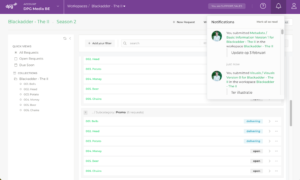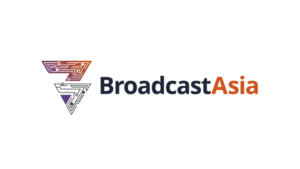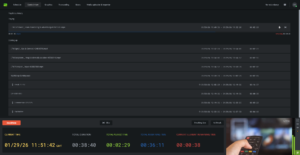Make sure these 5 questions are on your list to ask when buying object storage; the uncommon questions can make a big difference longterm
My son left for college yesterday. To say it’s been a winding path to get here is an understatement. Our search took us all over the country as he tried to find the right fit for him. Adding in the impact of Covid-19, one can appreciate how difficult making a major life decision can be without all the information. Luckily, with the power of the internet, he was able to obtain information that he never got to ask in person. But as we packed up his belongings to move with him to his new dorm, a whole slew of questions that we didn’t think to ask while making his decision came up.
We feel good about the easy things to understand (what are the dorms like, where are the dining commons, is the department for his area of study reputable), but we wish we had known to ask for more information. For example, how much storage space is there in the dorm room, are there late-night food options on campus, and how can he engage the alumni network to help with internships/summer jobs? While these may not seem like big items, they will directly impact his life.

The Typical Questions Customers Ask When Buying Object Storage
The other day, I was speaking with a customer who was in the beginning stages of purchasing data storage, specifically object storage, and spent the meeting answering the typical questions. From physical aspects (capacity, footprint, and cooling requirements), performance (IOPs, latency, throughput), management (UI, FTE hours, failed component replacement), support, and, of course, pricing. (Refer to the Checklist for Evaluating Object Storage blog for an extensive list.)
Will a Storage Platform Meet, Exceed or Fail Your Needs?
While some people can make a decision and deploy storage fairly rapidly, it is not unusual to take upwards of 3 years to evaluate, plan, procure and deploy a new storage platform for a complex environment. With this type of time investment, it’s critical that you understand all the aspects that could impact your staff and organization so you can make the right decision. Whether its a 100TB appliance, multi-node cluster or geo-separated, multi-site deployment, certain, less-obvious questions that are missed can be the difference between failing, meeting or exceeding those needs. A lack of in-depth understanding about what a product and vendor will or will not do can result in a purchase of storage that never gets the job done right, so the IT team ends up having to go back through the lengthy purchase and deployment cycle all over again to find the right storage platform.
The Questions Customers Should Not Forget to Ask When Buying Object Storage
Here are some examples of “extra” questions I would ask if I was purchasing an object storage solution:
What is the tech refresh plan compared to your data’s Lifecycle Management?
Most of the customers we speak with hold data anywhere from 7 years to in perpetuity. Regardless of which end of the spectrum your retention plan is, odds are a hardware tech refresh will be required at some point. For some solutions, this is an easy process because the storage software is decoupled from the hardware. This allows customers to have disparate hardware with different components working in unison that empowers a non-invasive and self-performable refresh. On the other hand, some solutions require a total forklift and all the headaches that come along with that approach—such as double the footprint while migrating, version compatibility, additional networking and, in some cases, specialized power and cooling to be deployed. It’s important to find out the hidden costs to refresh which generally hits your budget in year 3, 4 or 5.
What are all the purchasing options?
While it’s common to have the software-defined storage (SDS) vs pre-built appliance conversation, not all think to ask about programs that will utilize perpetual licensing vs subscription agreement. And recently, more organizations are offering a hardware-based consumption model. The specific question I recommend asking is, “Are there custom licensing programs to match the growth, budget and support required to make the platform successful for my use case?”
Are support and services customizable?
A small organization with just a couple of IT people and a large enterprise customer can use the same software, but typically, they need very different levels of support. Some important questions to ask to ensure success are:
- Can support be customized to meet the needs of the business, or are there just the standard options to choose from?
- Are additional services like health checks, migrations services, or custom integration/development available?
- Who can and will deliver the support and services?
It is common for a customer’s support needs to change over time, and it is critical to have options that will meet your future needs.
I’ve seen the roadmap, but what about a feature request?
Storage vendors build new features for a few reasons, including to stay current with the industry standards, add or enhance security, improve management, and facilitate data collection and reporting. Features are typically not developed with a specific customer’s workflow in mind, but rather by what will appeal to the broadest audience. But, what happens when there are specific changes needed to help a single company’s environment? Is that an option, and if so, just how does that get into the storage vendor’s development process and how is it prioritized?
How many operating systems or open-source applications have to be managed as part of the platform?
New versions of the system software (both SDS and appliance-based) will be released over the life of the platform. Asking about the details of the upgrade process (forced downtime vs no downtime is most common), is a normal conversation. But sometimes what is forgotten is how many different pieces have to be maintained. For example:
- If one piece is an open-source component, like a database, where does the customer go to get an approved version?
- How does a component upgrade impact performance?
- What about the underlying operating system (if the platform has one)?
- Does the customer need a seperate support contract for that to get help?
Where Can I Learn More About Buying Storage?
These are just some of the questions I would include if I were procuring a new storage platform. Like my son choosing his college, it’s going to be a multi-year relationship with your storage vendor and it’s important to be informed so you can make the right choice. Make sure you ask both the common and uncommon questions. For more information, I recommend watching these webinars:









